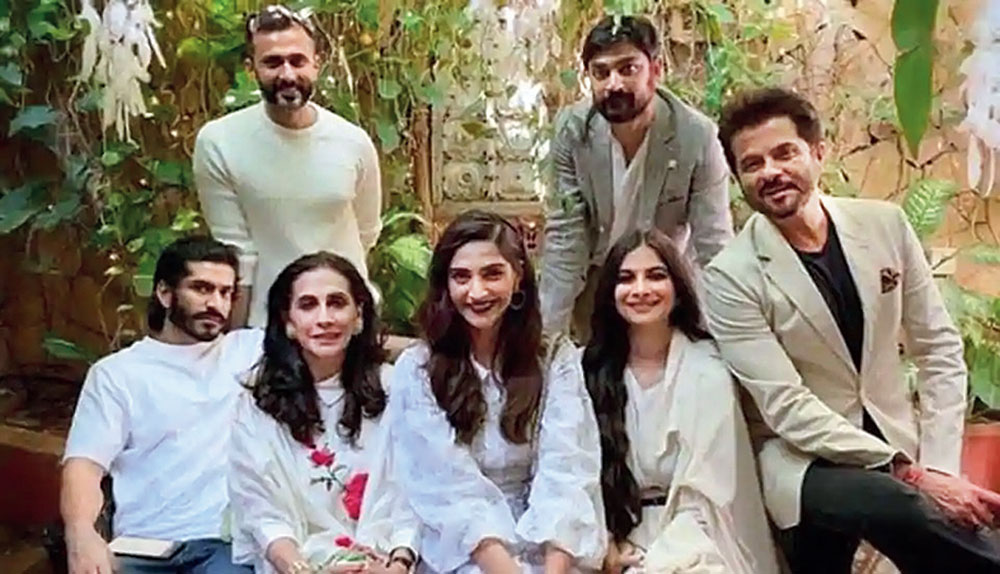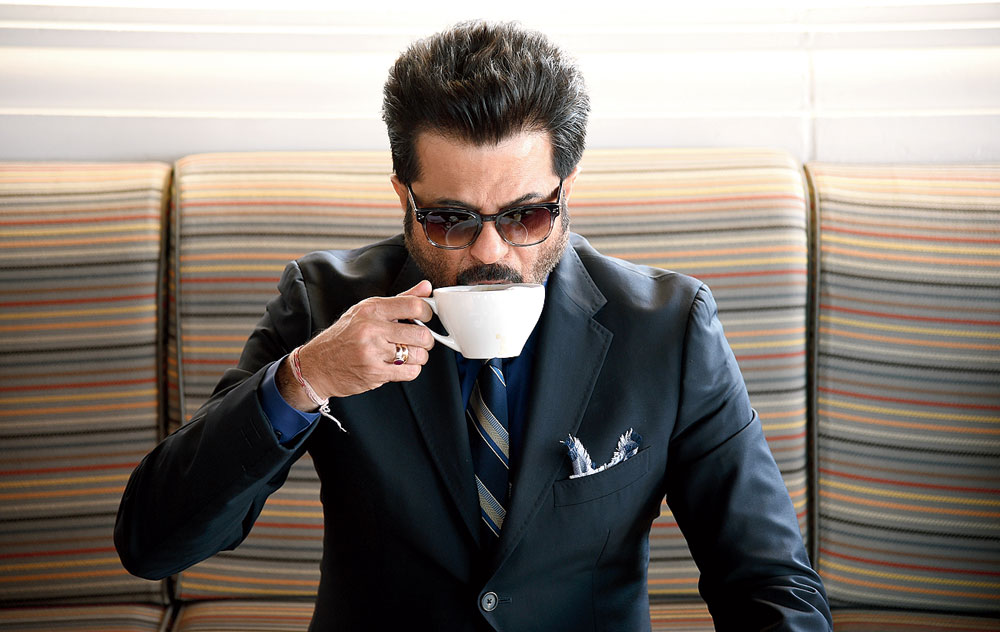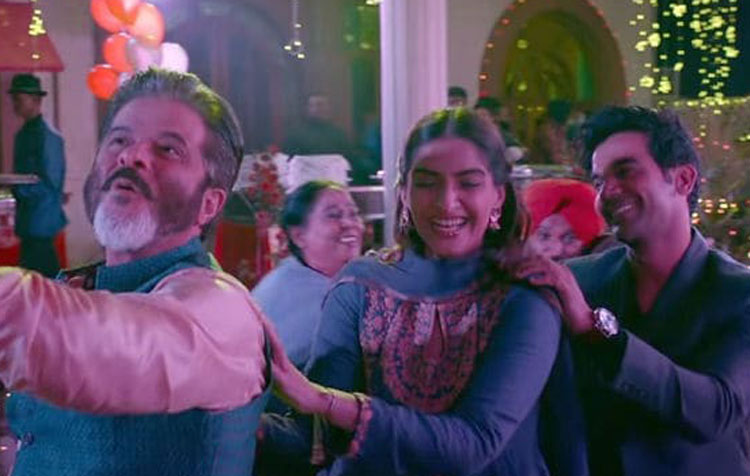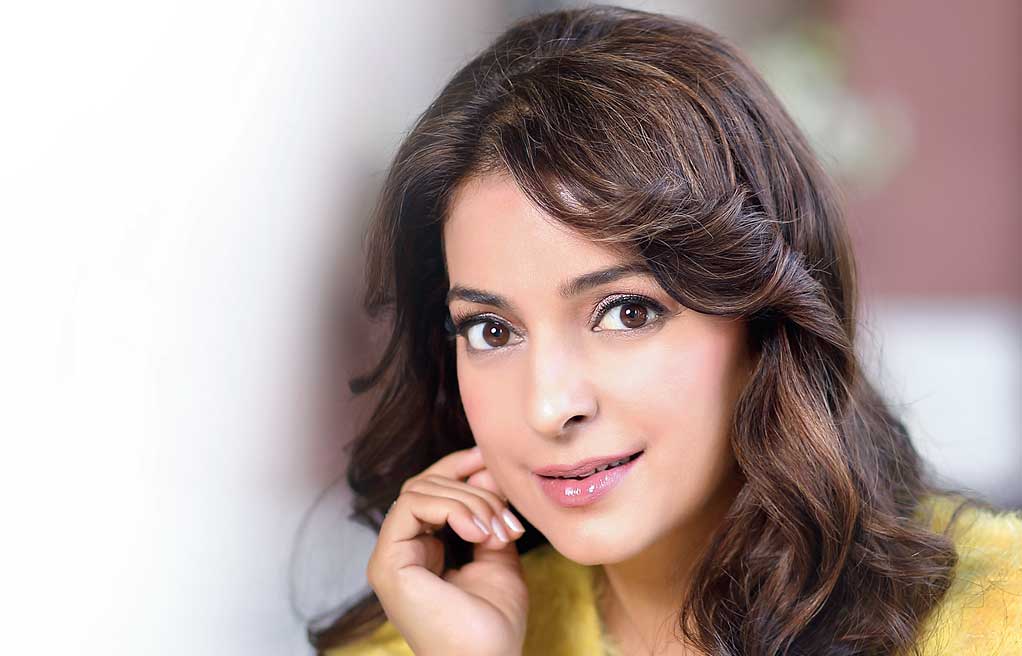Today, Anil Kapoor, the entertainer, and Anil Kapoor, the father, coexist in perfect harmony. This wasn’t always the case, though. In 1985, when Anil and his wife Sunita became parents for the first time (to Sonam), the actor had four films releasing and more than half a dozen were in different stages of production. This continued as Rhea and Harshvardhan were born. Anil wasn’t a father who was always present and he credits Sunita for taking over all parenting duties. This, obviously, has changed and it’s hard not to get the warm fuzzies from just his social media interactions with his three children.
What hasn’t changed, though, is Anil’s passion for films. While Woh Saat Din (1983) was the film that put him on the map, his first film as an adult actor was Umesh Mehra’s Hamare Tumhare (January 26, 1979), with Sanjeev Kumar. Even as he celebrates 40 very successful years in the limelight, Anil has two big films — Ek Ladki Ko Dekha Toh Aisa Laga and Total Dhamaal — this month. The two films couldn’t be more different from each other. One is an OTT ensemble-comedy where he teams up with Madhuri Dixit after eons, while the other is the first mainstream Bolly film to explore same-sex love.
We visited the sets of The Kapil Sharma Show, in Mumbai’s Filmcity, where Anil was promoting Total Dhamaal with his cast members. On the unusually crisp morning recently, the 62-year-old made a quick exit from his black BMW and entry into his custom vanity van. When I entered the plush van, the first person I noticed was a young man crouching over the actor’s chair. He held a knife to Anil’s throat. It took me a heartbeat to realise that Anil was in the middle of getting a shave! In that same moment, Anil realised that he had company. The knife and the shave were quickly forgotten and Anil jumped up in greeting. Over a great cup of dark roast coffee, I got to explore two important aspects of this evergreen actor’s personality.
Anil — The Parent
How different was it from real life to play father to Sonam in Ek Ladki Ko Dekha Toh Aisa Laga?
As a person, I’m obviously totally different from the character I have played. I grew up in the suburbs of Mumbai and have been very liberal. Balbir Chaudhary, the character I play, is from the small town of Moga and is moderate. That’s the major difference. As a father, the whole dynamic between Sonam and me at home is completely different. She told me I’m quieter at home than I am on the set, and that I listen a lot more.
Of course, at home, I’m surrounded by three women — my wife, Sonam and Rhea — and it’s a lot of fun and humour, not a very serious atmosphere. We are all always making fun of one another. It’s either my wife and me making fun of Rhea, or when it’s Rhea and me, we make fun of Sonam. When it’s Sonam and me together, we make fun of Sunita but when all three of them are together, they’re just cracking up together about all the crazy stuff I do. That’s the kind of atmosphere at home. In this film, the relationship within Balbir’s family is completely opposite.
As a father you’re always looking out for your children and want the best for them. As an actor on the set, however, you also have to think about yourself. Was it easy to disconnect as soon as “action” was called?
This was slightly different and a bit layered. She’s the lead in the film along with Raj (Rajkummar Rao) while I’m a character actor. There’s a difference and I understand that, but I still wanted to give it my best. Not because I wanted to do it for myself, but more because she’s there in the film. I wanted the film to be the best ever. Of course, I was working with a new director (Shelly Chopra Dhar), so the responsibility was even more and I was more anxious, nervous and stressed. When you know the director’s past work, it’s a different thing but it was quite scary for me to say ‘yes’ to the film.
Who was the film offered to first?
They pitched it to Sonam first, while she was shooting for Sanju. The writer, Gazal (Dhaliwal) spoke to Sonam and then Raju (Rajkumar Hirani was credited as the film’s co-producer in the teaser that was launched in June 2018. The trailer of the film that released in December, after sexual harassment allegations against the Sanju director came to light, makes no mention of him) spoke to her. Even after she heard it, Sonam didn’t say anything to me. It was Vinod (Vidhu Vinod Chopra, the film’s producer) called me up, after which she spoke to me.
You’ve both been on the lookout for a film to make together. Why is this the perfect film?
I think it’s a great father-daughter story, and it’s a very entertaining film. There’s a lot of humour, a lot of fun, there’s family and it also says something at the end of it. If there’s one thing I’ve learnt from filmmakers like Bimal Roy, Guru Dutt and Raj saab (Kapoor), it’s to make films that are mainstream and entertaining, but if you can make a few people think and somehow improve their lives, it’s wonderful. I’m always on the lookout for these kinds of films.
Sonam is your firstborn. Do you remember the moment when she was born?
Yeah (smiles). She was born in Breach Candy Hospital. By the time she was born, I was doing well with my career and had bought our home in Juhu. She came straight to our new home from the hospital. After I had got married, we were still living in our Chembur home. There was no place in the house, so Sunita and I even stayed for a few months in Raj Kapoor’s house because it was much larger. All three were born in Juhu; they never saw where we lived in Chembur.
You were at the peak of your career, doing multiple shifts a day, when Sonam, Rhea and Harshvardhan were born. What kind of father were you?
I was working so much and I give Sunita full credit — she single-handedly brought them up. At gunpoint, I would be there for all the birthday parties, PTMs and school annual-day functions. I would be physically present, but my mind was never there at all. I’d be thinking about Subhash Ghai or Rakesh Roshan or some other director or producer out there waiting for me. My only thought would be how to escape and get back to my shoot.
I didn’t do too many multiple shifts, but I’ve definitely been shooting almost every day for the past 40 years. I wanted to give them the best, but overall it was Sunita who brought them up. I was too busy working and was busier satisfying my directors. Of course, we lived in a joint family and I had an even greater responsibility — it was not just my immediate family, it was the entire family.
Today, you share a close bond with your kids. When did your relationship with them change?
Just the way the children grew up, I also grew up. About 15 years ago, I began to understand that life is much more beautiful when everything is balanced. You can’t just keep working and ignore everything else. You have to focus everywhere — your career, family and health. That’s when your life is complete. You need to have a 360-degree focus.

Anil Kapoor's family Source: Anil Kapoor's instagram
At what point did you realise that all of your kids were interested in films?
They all came to us one by one. It was a big surprise to me; I never knew. Nobody ever gave me any indication that they were interested in films, and we weren’t the kind of parents who were grooming our children either: no photo-ops, no dancing or riding lessons, never tried to put them in front of a camera. They were brought up in a very normal way, went to a normal school, and nobody knew who they were.
They lived a very normal childhood, because Sunita lived a very normal life. People over the past 35 years or so have wanted to know more about us as a couple but Sunita’s been very categorical and firm about her privacy. I tried my best to get her out, to speak to the media, to pose with me for pictures and build my family brand… do what others do. That stuff sells, and I was getting a lot of covers but had to sacrifice them because she just refused. I keep teasing her about it, and ask her if she’d do it for her son. But it’s always: “No, never.” (Laughs)
When each of them decided that they wanted a career in the movies, did they come and talk to you individually or did it just happen?
It just happened. Sonam, of course, was the only one who told me she wanted to work with (Sanjay Leela) Bhansali and assist him. So I did speak to Bhansali, and she worked with him as an assistant. Rhea went to NYU and was always independent and strong, with a mind of her own. Harsh is a thinker, there’s a lot of depth and he’s a very layered person — he knows world cinema. So, it took time to Bollywood-ise all three of them. It’ll probably take each one of them a decade to really understand how this industry works.
You consciously decided to not launch any of your kids?
Yes. First, I was never launched by anyone and I did it on my own. I always had the confidence that they could do it on their own. And they’re doing it on their own.
How much of cinema gets discussed at home? Do they talk to you about what they’re working on?
I don’t think we talk too much about films. Harsh is the one who’s completely into cinema. He also loves football, so our conversations are a combination of football and cinema. Rhea is into cooking and food and, of course, she’s also a great stylist. When she was a child, I remember entering her room and seeing a two-year-old in her chaddis surrounded by hundreds of dolls, and she’d be dressing them up. It’s probably why she’s the top stylist in our country today.
It’s believed that fathers have a really hard time when their daughters get married. Sonam got married last year. Did you get emotional during the wedding?
I think things have changed now. Also, with the way Sonam and Rhea are, it’s very important for them that we as parents should also like the boy. In spite of everything, they are conservative in that way. I think that’s one of the reasons I didn’t feel anything, because Anand (Ahuja) and I are already friends and we connected from the day we met.
Anil — The Actor
Two films this month!
Both films were supposed to get released in the last quarter of 2018 and were complete. But they got pushed for technical reasons; one was for special effects, the other needed more time for post-production. They’re diametrically opposite films, the roles I play are completely different and both are ensembles. Had both been carried on my shoulders, it would have been a different thing. I’m part of both the ensembles, so it doesn’t make a difference.
You’ve completed 40 years in the business. What has been your biggest learning?
I have learnt quite a few very important things. The biggest learning is to keep on working. The choices you make only work when you have the right directors and the right scripts. Professionalism is very important, and people should feel having you in a film means you’ll give it your best, no matter what the fate of the film is eventually. And of course, lady luck is so important. In our business, luck plays a huge role; hard work is not always enough.
You’ve faced the camera pretty much every single day all these years. What goes in the last five minutes before the director screams “action”?
My mind is constantly ticking, you know you’ve done your homework and research, you have your instincts and you want to make it look as real as possible. You don’t want to fake any moment. You want it to be engaging for the audience who’s paid money to watch you on screen, that’s who you’re communicating with. Of course, on the set, I want to satisfy my director.
You’ve played a range of characters through your career. Is there anything specific you still have on your wish list?
Yeah, yeah. There are quite a few things that I feel I have not done. I’ve not dabbled in science fiction and horror. I, also, haven’t done an outright slapstick. Right now, I really would love to do more great shows like 24, or something like House of Cards. There’s so much left to do!
You also produce but you’ve never directed. Did you never feel the urge to tell your stories?
I think I’ve been very fortunate, because my creative juices are always flowing. So many good roles and opportunities kept banging at my door. That’s the biggest success for me, that I can still refuse films and make my own choices. It’s very rare to be in a situation like this, for so many years. So, I’ve never felt the urge to direct, and I enjoy acting so much, why take the additional responsibility?












